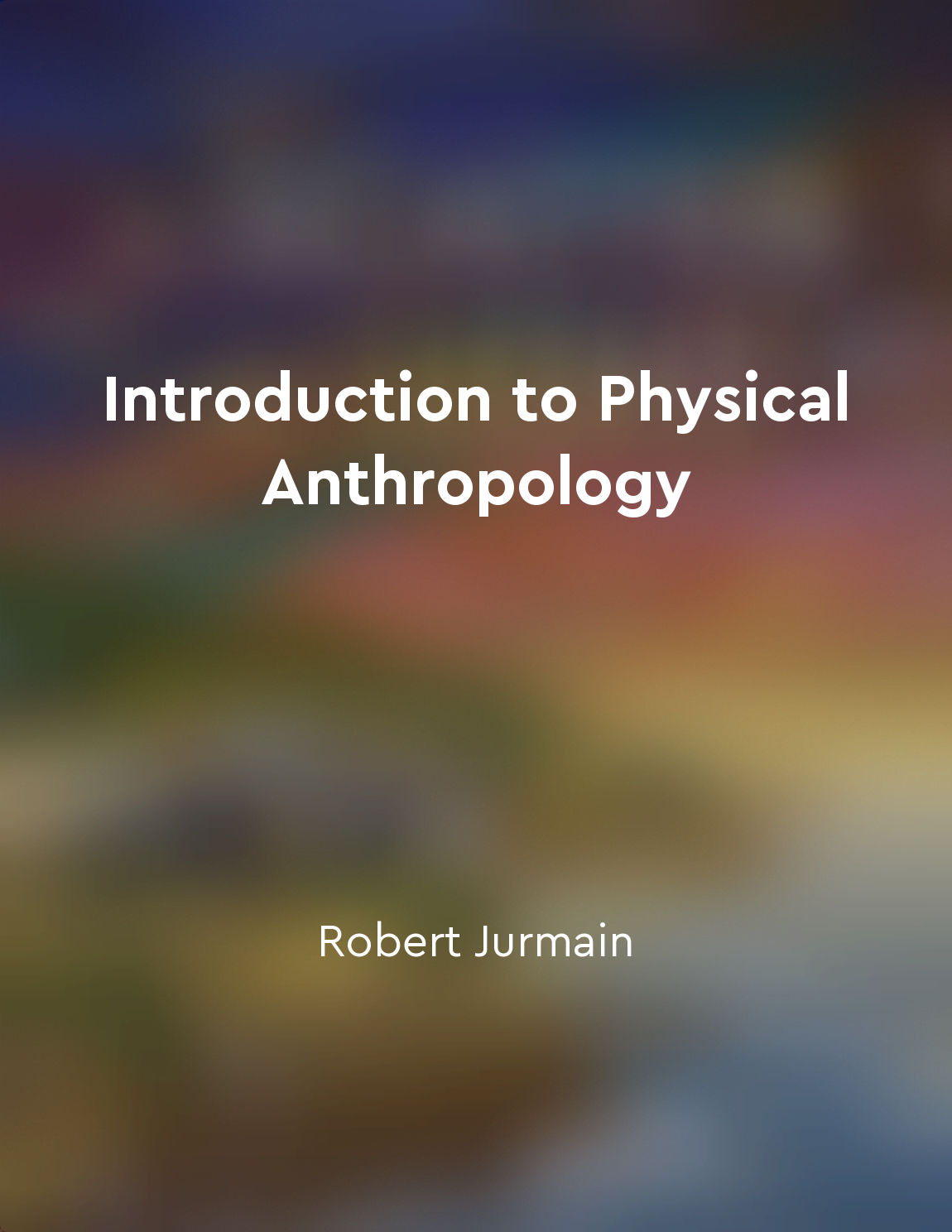Human adaptation to different environments is a key aspect of physical anthropology from "summary" of Introduction to Physical Anthropology by Robert Jurmain,Lynn Kilgore,Wenda Trevathan,Russell L. Ciochon,Eric J. Bartelink
Human adaptation to different environments is a central theme in the field of physical anthropology. As humans dispersed across the globe, they encountered a wide variety of environmental challenges that required them to adapt in order to survive and thrive. The study of how humans have adapted to their environments over time provides valuable insights into our evolutionary history and the factors that have shaped our biological diversity. Physical anthropologists examine how humans have evolved in response to different environmental pressures, such as climate, food availability, and disease. By studying the physical traits of populations living in different environments, researchers can gain a better understanding of how natural selection has shaped human biology. For example, populations living in high-altitude regions have evolved physiological adaptations, such as increased lung capacity, to cope with lower oxygen levels. In addition to physiological adaptations, humans have also developed cultural strategies to survive in diverse environments. For instance, traditional Inuit populations have developed specialized hunting techniques and clothing to survive in the harsh Arctic environment. These cultural adaptations are passed down through generations and play a crucial role in human survival and success in different environments. Studying human adaptation to different environments also sheds light on the complex interactions between biology and culture. For example, the development of agriculture allowed humans to settle in one place and build complex societies, leading to changes in diet, health, and social organization. These changes in turn influenced human biology, such as the evolution of lactose tolerance in populations with a history of dairy farming.- The study of human adaptation to different environments is a multifaceted and dynamic field that encompasses biological, cultural, and evolutionary perspectives. By examining how humans have adapted to diverse environments throughout history, physical anthropologists can gain valuable insights into the complex interplay between biology, culture, and environment in shaping human evolution.
Similar Posts
Our social instincts drive us to form communities
Human beings are inherently social creatures, driven by a deep-seated instinct to form communities. This instinct is deeply roo...
Morality is rooted in both science and religion
Francis Collins argues that morality is not solely derived from either science or religion, but rather is rooted in a combinati...

Embracing diversity leads to a more inclusive world
The idea that embracing diversity can lead to a more inclusive world is a powerful concept that resonates deeply with the theme...
Understanding genetics can lead to new medical treatments
The power of genetics in shaping human destiny is immense. By probing the intricacies of our genetic code, scientists can unloc...

The Paleo Diet can improve energy levels
In our modern world, it is common for people to experience chronic fatigue and low energy levels. This can be attributed to var...
Phylogenetics traces evolutionary relationships
Phylogenetics is a field of study that seeks to unravel the complex evolutionary relationships among organisms. By examining th...
Extinction is a natural part of the evolutionary process
Extinction poses a fundamental aspect of the evolutionary process, as life's history reveals a consistent pattern of species em...

Avoid processed foods and refined sugars
When we think about processed foods and refined sugars, we tend to picture the obvious examples like candy bars and soda. But t...
Even small changes can have profound effects on ecosystems
In the Serengeti, one of the most iconic ecosystems on Earth, a simple experiment was carried out that revealed an astonishing ...
Landscape determines life
The landscape of the Arctic, vast and severe, shapes the life that inhabits it in profound ways. From the intricate relationshi...


